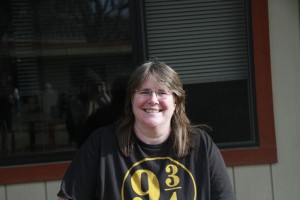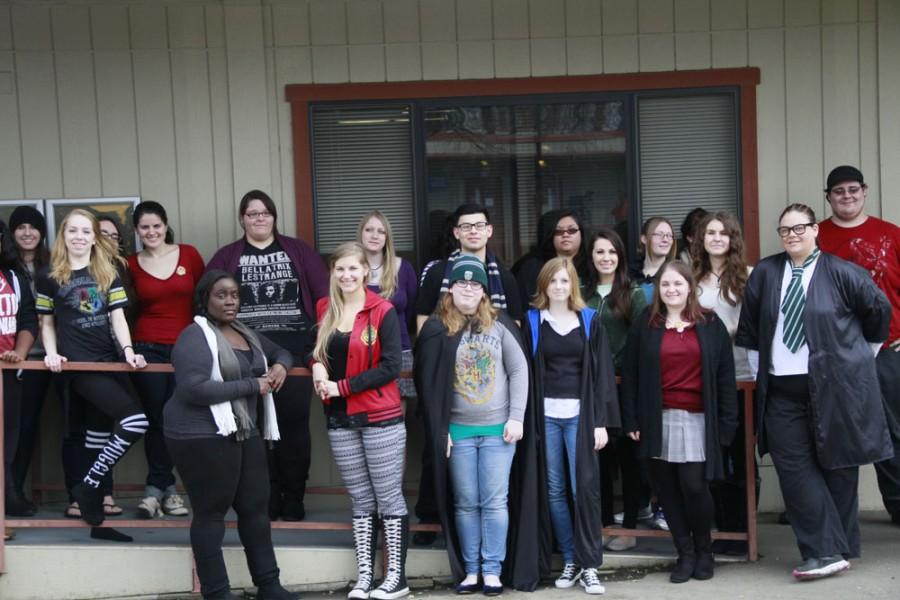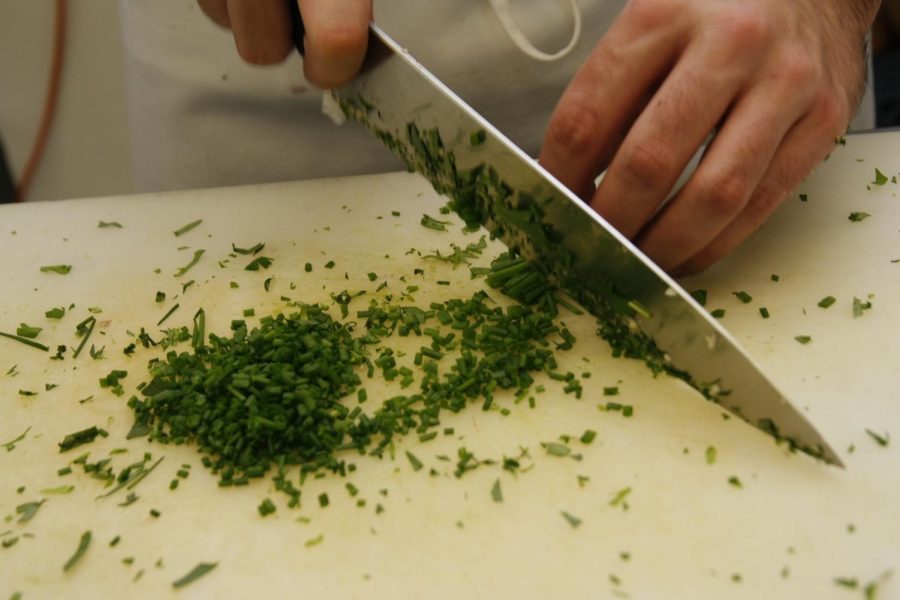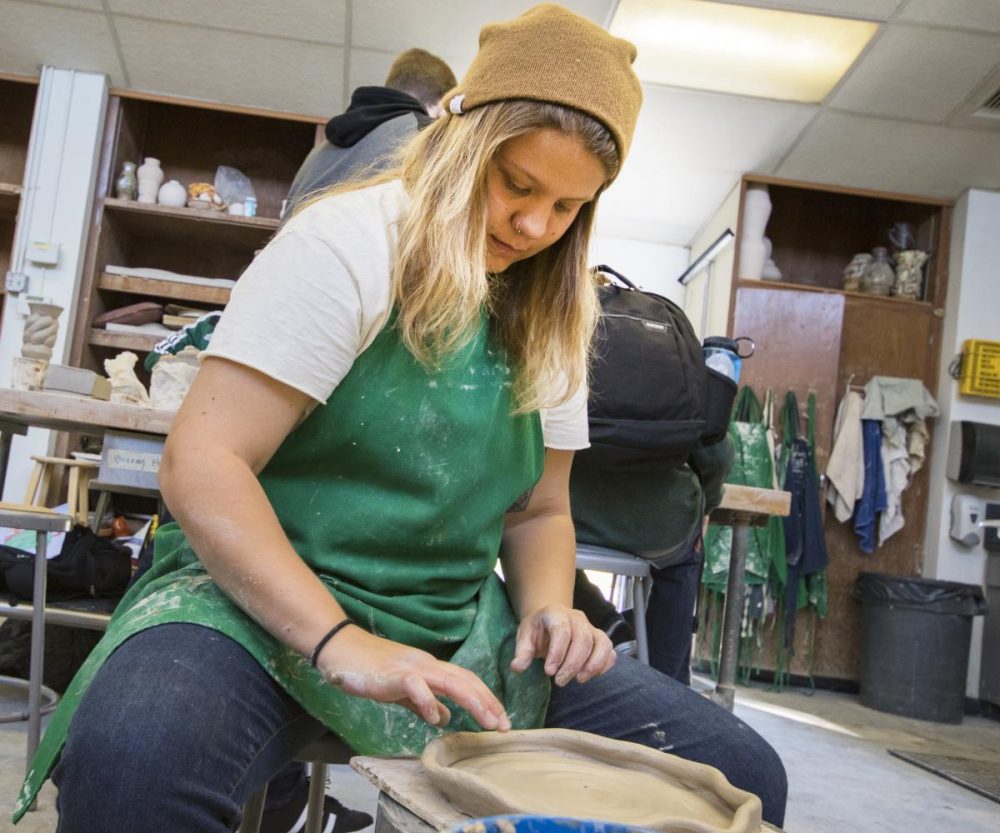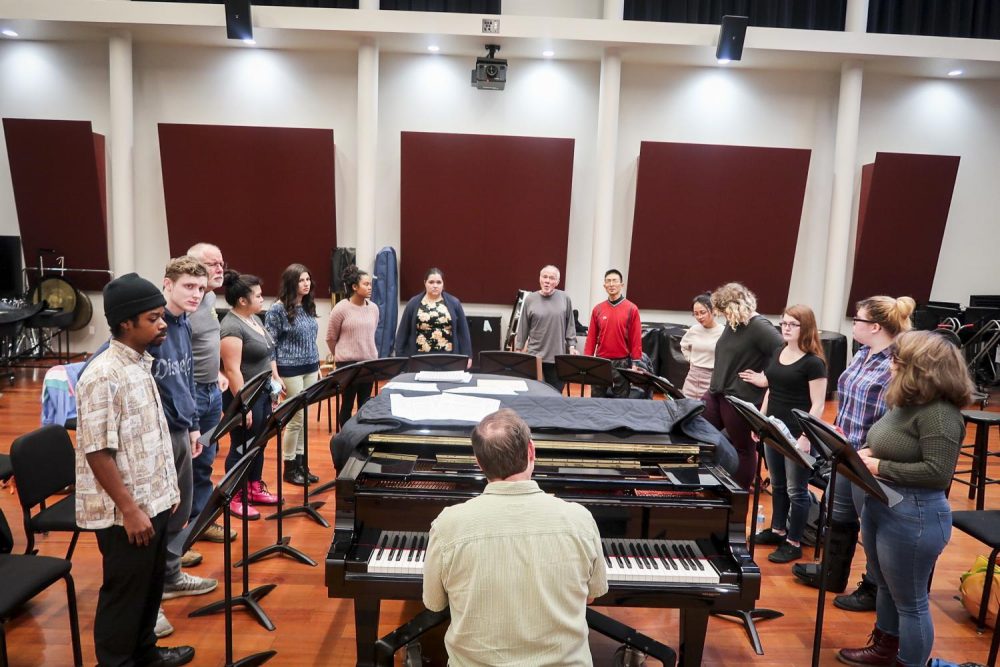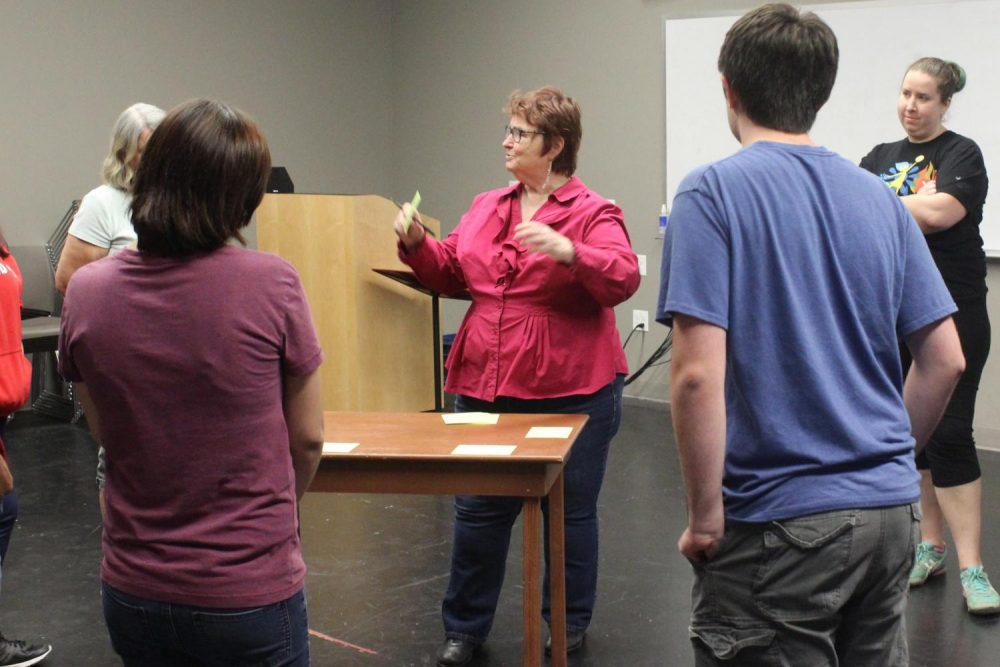On Thursday, Feb. 13, students in professor Susan Howes’ Young Adult Literature course enjoyed a Harry Potter party.
Students came dressed in Harry Potter attire, armed with Hogwarts shirts, wands, capes, Harry Potter-style glasses, even “muggle” socks.
Howe encouraged students to bring to their own Harry Potter-themed cuisine, such as a dessert made to resemble “Mrs. Norris’ Potty,” “butterbeer” and Hagrid’s “rock cakes.”
Young adult literature has much in common with a typical English literature class, as according to the course description, “this course includes an analysis of literary elements, an examination of authors’ style and content, and reflection on what makes a piece of literature a classic.”
Professor Howe makes students feel welcome and wanted, and perhaps uniquely, she strives to make the class fun.
ENGLT 378 is a young person’s literary class that offers insight into the increasingly popular genre of Young Adult Literature, which includes recent bestsellers such as the Harry Potter, Hunger Games and Twilight series.
According to the course catalog, the course “presents an overview of young adult literature and is designed to incorporate the ever changing nature of this genre. The literature addressed reflects the themes of interest to young people.”
Furthermore, “Topics include a review of the history of young adult literature, readings of contemporary award-winning young adult literature, as well as a look at some of the classics from the past. Censorship concerns and culturally diverse selections also form a core part of the course.”
The prerequisite for this class is ENGWR 300 with a grade of a “C” or better, however, Howe recommends students complete ENGWR 301 before attempting such a rigorous course.
Howe expects students to have some prior knowledge of literature, such as plot, character, point-of-view and theme, all things one might learn in ENGWR 301, (an introduction to literature course).
Students must write their papers and present them. Professor Howe has students read their essays aloud to build confidence. If students refuse, she will read it aloud for the class. She wants her students to proud of their work–in this case, both loud and proud.
